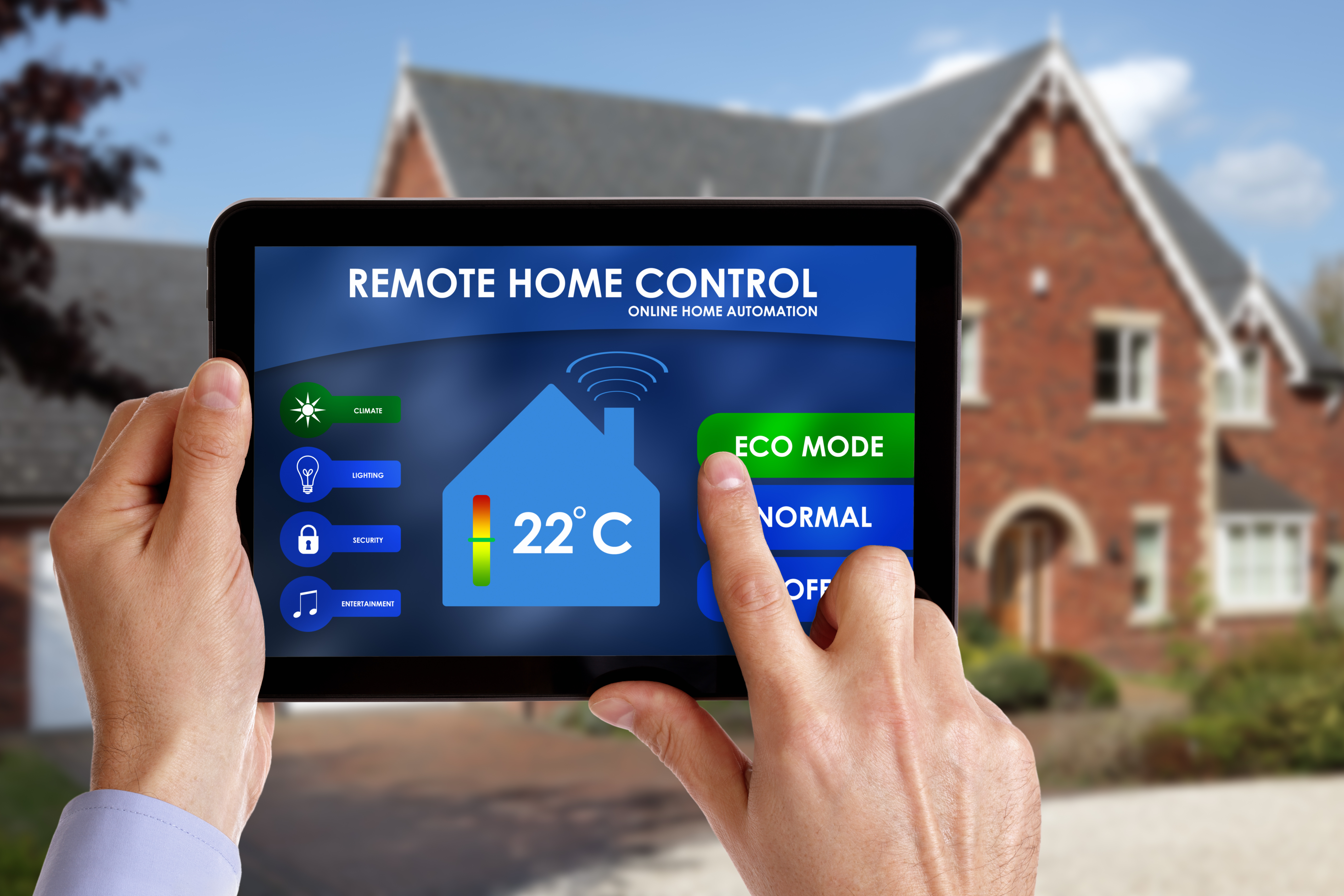Smart home needs promotion in Azerbaijan

By Aynur Karimova
How often do we look for a light switch in the darkness? Or here’s a common situation for everybody when we are not at home and little doubts start to crowd our mind: Did I turn off the iron? Did I set the security alarm? Are the kids doing their homework or watching TV?
Imagine that when you come home, you quietly put all of your shopping bags on the floor, while someone switches on the light for you. Or when you wake up at night to drink a glass of water, the light switches on exactly where it is needed and then it switches off by itself.
Mankind's long-awaited dream has become a reality, which is called a smart home. The smart home may control lighting, temperature, multi-media, security, windows, doors, as well as many other functions. If you live in a smart home, you will never come across such worries before leaving the house, because the smart home will do everything for you.
In 2003 the UK Department of Trade and Industry came up with the following definition for a smart home: "A dwelling incorporating a communications network that connects the key electrical appliances and services, and allows them to be remotely controlled, monitored or accessed.”
Measures needed to apply smart home in Azerbaijan
Today, smart home systems are widely used all over the world. The results of a study conducted by the Swedish Berg Insight Company show that the number of smart homes in Europe and North America reached 10.6 million in 2014.
Rasul Suleymanov, the chairman of the Association of Engineers and Energy Specialists of Azerbaijan, told local media that currently, only two companies are engaged in the introduction of smart home in Azerbaijan.
"Today these systems do not enjoy wide popularity among the population in Azerbaijan, but I think that the situation may change in the future," he said. "Some citizens in our country are aware of the importance of applying such a system and install it in their homes, but their number is few. In my memory, only 10 houses and flats in Baku are equipped with such a system."
A smart home connects devices and appliances allowing them to synchronize and communicate with each other. It uses a home automation system to provide home owners with intelligent feedback and information by monitoring many aspects of their home.
Climate control, lights, appliances, locks, and different types of cameras and monitors can all be added to a home automation system and controlled from anywhere in the house, and even remotely.. For example, a smart home's refrigerator may be able to catalogue its contents, suggest menus, recommend healthy alternatives, and order replacements as supplies run low. A smart home might even take care of feeding the cat and watering the plants.
This connectivity can be achieved in a number of different ways. There are proprietary systems specifically designed for home automation, like Z-Wave, Zigbee, KNX, and Control4, so you can use Wi-Fi to control your devices over the Internet. And since many are also Bluetooth-enabled, internet connectivity is not required.
The main benefit of a smart home is convenience. Having a smart home lets you do a lot of the things that you’d normally do with less effort. You can set schedules for your appliances, so that certain things will happen at specific times of day, and some appliances will even learn your schedule and activities so that the amount of effort you have to put toward managing your home is drastically reduced.
A smart home also promotes efficiency. For example, they learn how you like to have your house heated and cooled and adjust the temperature accordingly, saving energy. It also goes into “away" mode when you leave the house, further reducing your heating and cooling bills.
Suleymanov believes that Azerbaijan needs to adopt relevant legislation to support the broader implementation of such systems.
"The governments of Germany and Sweden have introduced a preferential tax system for homes equipped with the smart home system to facilitate access of citizens to such systems," he noted. "Electronic and print media outlets have also joined the popularization of smart homes with an aim to promote the benefits of application of the system."
Suleymanov noted that a smart home can be installed not only in private houses, but also in apartments and even in old Soviet houses.
"To talk about the price of the system, the average cost of smart homes is 50 manat per square meter, and the companies engaged in the installation of this system give 15-20-year warranty on the system's operation," he added.
Nariman Agayev, Chairman for Research on Sustainable Development Center, told local media that only 0.5 percent of apartments and private houses in Azerbaijan are equipped with a smart home system.
"An integrated approach is needed to start the application of this system in Azerbaijan. For example, insurance companies could play an important role in it by not insuring houses and apartments which are not equipped with smart technologies," he noted.
Smart homes present some very exciting opportunities to change the way we live and work, and to reduce energy consumption at the same time. Imagine being able to open windows, switch on lights and raise curtains and keep watch over your kids through your smartphone from anywhere in the world! Smart homes have come so far that the only limit for their application is our imagination.
--
Aynur Karimova is AzerNews’ staff journalist, follow her on
Twitter: @Aynur_Karimova
Follow us on Twitter @AzerNewsAz
Here we are to serve you with news right now. It does not cost much, but worth your attention.
Choose to support open, independent, quality journalism and subscribe on a monthly basis.
By subscribing to our online newspaper, you can have full digital access to all news, analysis, and much more.
You can also follow AzerNEWS on Twitter @AzerNewsAz or Facebook @AzerNewsNewspaper
Thank you!
